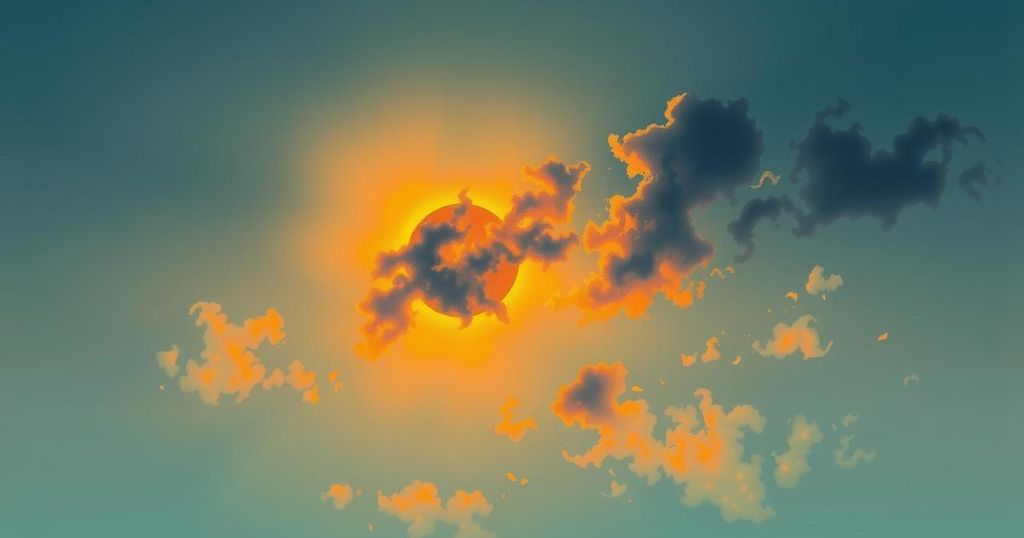Partial Solar Eclipse to Grace Northern Hemisphere Today
A partial solar eclipse will occur today, visible from eastern Canada to Siberia, lasting about four hours. The eclipse begins at 8:50 AM UTC and ends at 12:43 PM UTC. Observers should take precautions with eye protection while viewing, as powerful sunlight can cause damage. The next total solar eclipse will happen on August 12, 2026.
Today, a partial solar eclipse will occur, partially obscuring the sun as the moon moves in front of it. This event will be visible across various regions of the northern hemisphere, ranging from eastern Canada to Siberia. The eclipse, designated as the 17th of the 21st century and the first this year, is anticipated to last approximately four hours, starting at 8:50 AM UTC and concluding around 12:43 PM UTC.
According to Florent Deleflie, an astronomer at the Paris-PSL Observatory, the initial viewers of this phenomenon will be residents of Mauritania and Morocco, while those in northern Siberia will be the last to witness it. Furthermore, the eclipse will also be visible in parts of Europe, peaking at 10:47 AM UTC over northeastern Canada and Greenland, where observers can expect nearly 90% coverage of the sun’s disk.
A solar eclipse takes place when the sun, moon, and Earth align perfectly. In this instance, Deleflie explained that “the alignment was not perfect enough for the shadow cone to touch the Earth’s surface,” which means that a total eclipse will not occur.
In France, the eclipse can be seen between 10:00 AM and 12:00 PM UTC, obscuring 10% to 30% of the sun’s disk, depending on the location. Despite this limited coverage, it is important for observers to utilize proper eye protection as the intensity of sunlight can cause significant damage to the eyes. Deleflie cautioned that “the slightest defect in the surface of the glasses, even if it’s a microscopic hole, can cause eye burns.”
This solar eclipse closely follows a total lunar eclipse that made the moon appear red, as noted by Deleflie, which is common as the moon approaches the halfway point in its cycle around Earth. The last partial solar eclipse observable in mainland France occurred on October 25, 2022. Looking ahead, a total solar eclipse is expected on August 12, 2026, although its path will not cross France, still obscuring 92% of the sun’s surface area in Paris and up to 96% in Marseille.
The partial solar eclipse offers a remarkable celestial spectacle, primarily observable across the northern hemisphere. While significant precautions must be taken to protect one’s eyesight, this event will provide a valuable opportunity for both casual observers and astronomy enthusiasts alike. Future eclipses are also on the horizon, maintaining public interest in astronomical events.
Original Source: www.jordannews.jo




Post Comment